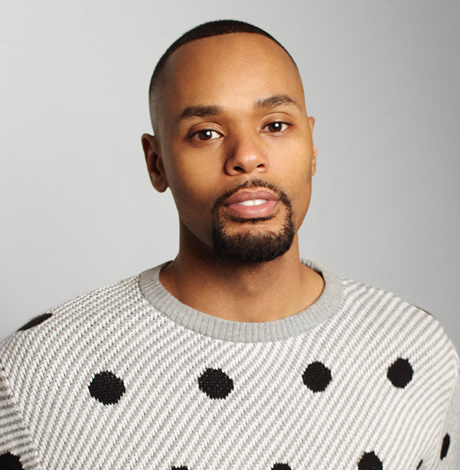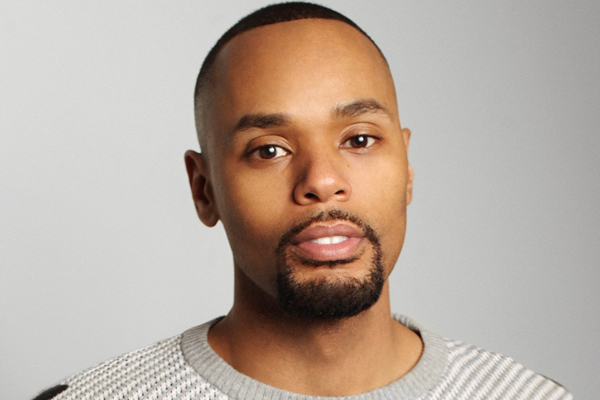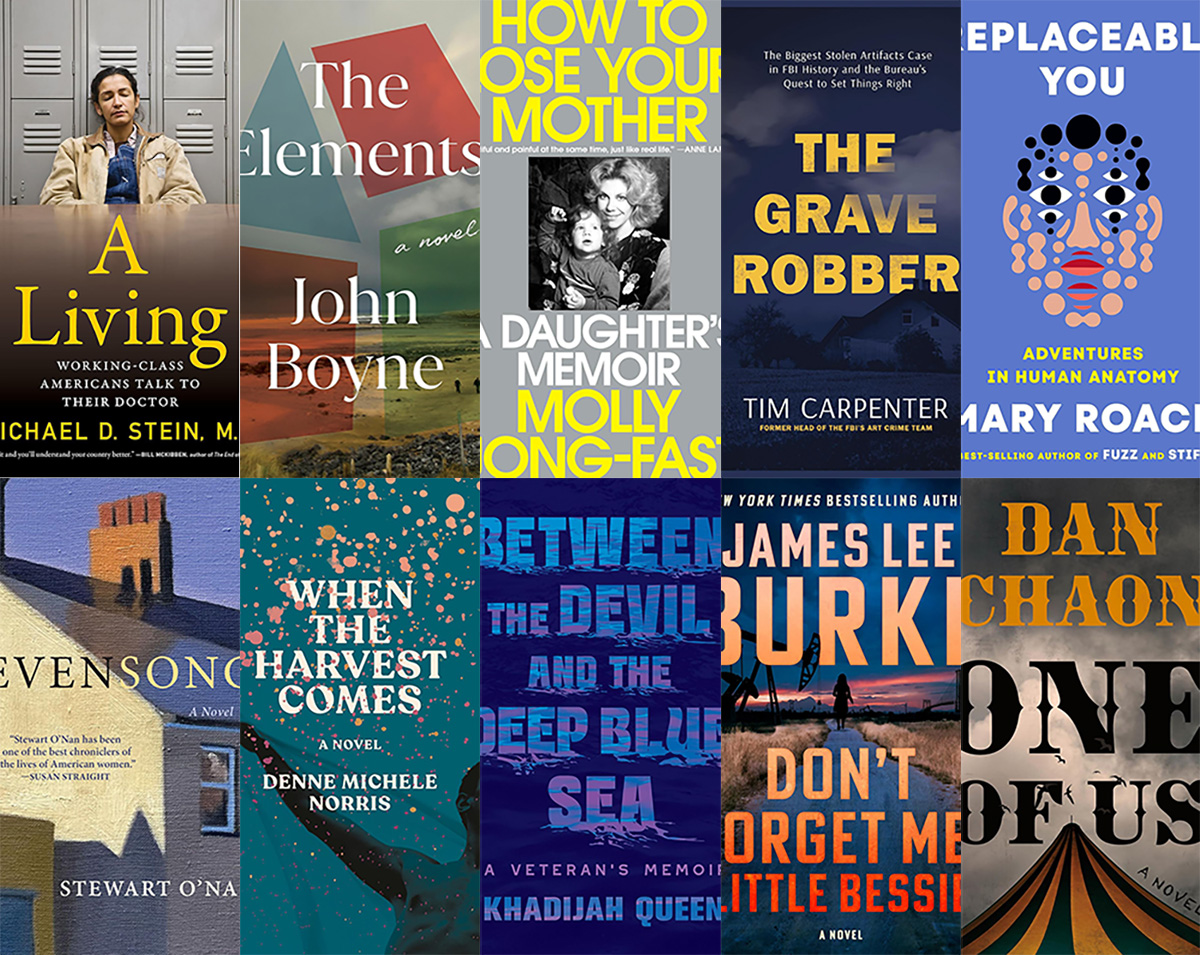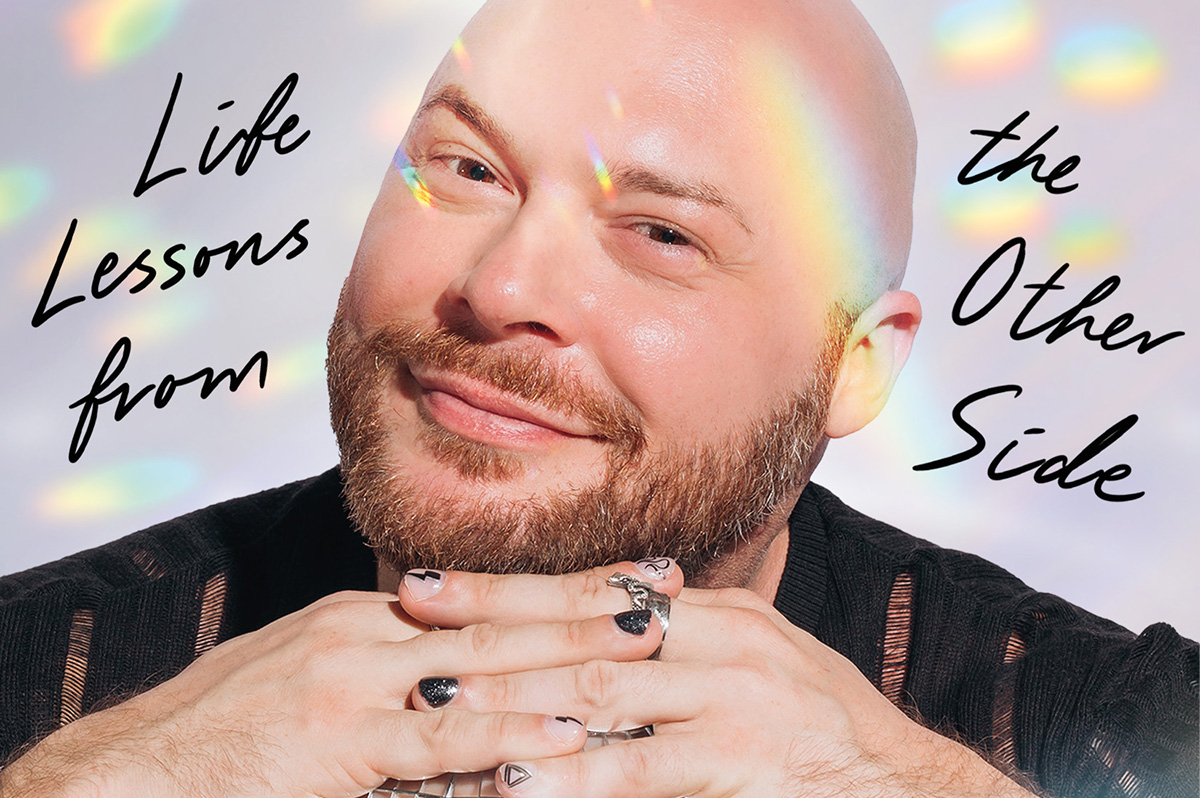Books
New Arceneaux essay collection finds humor in autobiography
Houston-born writer recalls childhood, Beyonce, Jesus and more


Michael Arceneaux brings dead-pan humor and self-deprecation to his new book of essays. (Photo courtesy Atria)
‘I Can’t Date Jesus: Love, Sex, Family, Race and Other Reasons I’ve Put My Faith in Beyoncé’
By Michael Arceneaux
Atria$17
256 pages
Maybe you’re among the unenlightened. Flea-infested hookups don’t make you smile. You don’t genuflect before Beyoncé. Don’t worry. Dive into “I Can’t Date Jesus,” a debut essay collection by writer Michael Arceneaux. You’ll emerge laughing out loud at post-hookup fleas and worshiping Beyoncé.
Literary mavens talk of “original,” “wryly humorous” and “insightful” authors the way politicos spit out talking points. Yet with Arceneaux, no other words will do. What else can you say when a book’s dedication alone makes you check your privilege while laughing?
“Once an old high school classmate told me … in Houston that I would end up working in Burger King,” Arceneaux writes, “because I had majored in journalism. This book is dedicated to dummies like that who don’t know when to shut the hell up.”
“Also: pay fast food workers livable wages,” he adds.
Arceneaux, born in 1984, raised in Houston and a Howard University graduate, is a black, Southern queer man. His funny, spot-on work has been published and heard widely.
Arceneaux’s bio is dizzying. He’s a regular contributor to sites from Essence to Into to the Root, and has written for publications from The New York Times to The Washington Post to Vogue to NPR’s Code Switch to Buzzfeed to Comedy Central Online. His fans enjoyed his political and pop culture commentary on his humor blog The Cynical Ones. Essence magazine called Arceneaux one of the top #BlackTwitter voices. He’s been featured on media outlets from MSNBC to NPR to BET to Viceland.
It’s no wonder that Arceneaux aficionados are happy to see “I Can’t Date Jesus,” a compilation of 17 of his essays, in a book. There’s the pleasure of not only reading his pieces in book form but of learning more about Arceneaux’s personal life. The volume is a memoir and commentary on being a black, Southern, queer, recovering Catholic chock full of biting, often hilarious takes on politics and pop culture.
Arceneaux grew up in a working-class family. His dad drank too much and abused his mom. His mother loved him, but believed that homosexuality goes against the teachings of Christianity and the church. Even at age 5, Arceneaux, though he didn’t have a name for it, knew he liked boys. When he and another little boy at the daycare center found that their tickling game is “fun,” Arceneaux got nervous. “Fun came at a price, however,” Arceneaux writes, “if you were caught.”
Once Arceneaux was caught behind the playground pulling his pants down in front of another boy (who responded in kind).
“It was like show and tell: the remix,” he writes. “I knew that I had enjoyed what I was doing, but I also knew that others — namely my parents — wouldn’t share my enthusiasm.”
At age 6, Arceneaux learned what his feelings for other boys could be called. But, it wasn’t a Mister Rogers teachable moment. His Uncle Daniel (his dad’s brother) died of AIDS. In response to Daniel’s death, his father said “Fuck that faggot.”
“That slur is what will always hit me in the pit of my stomach,” Arceneaux writes. “More important, this is how I learned how being different could lead to your demise.”
Coming out for him was a long process involving awkward attempts at sex, running away from and then greeting his Howard classmates at a gay Pride parade and Beyoncé. Why is Beyoncé his “lord and garroter?” Because, Beyoncé, who like him went to Welch Middle School in Houston, is “home” to Arceneaux.
“Beyoncé’s stance on remaining exactly as she’s always been no matter what is happening around her,” he writes, “has instilled in me the strength to remain the Gulf Coast ratchet bird I am.”
Arceneaux writes about the personal and the political — from racism to marriage equality to Madonna to Donald J. Trump — with David Sedaris’ blend of humor and pathos and James Baldwin’s dazzling, lacerating honesty. Woe to any white editor who tries to box him into writing about “black homophobia, AIDS, sexual racism.”
You leave “I Can’t Date Jesus” wanting more and that’s a good thing.

This past year, you’ve often had to make do.
Saving money here, resources there, being inventive and innovative. It’s a talent you’ve honed, but isn’t it time to have the best? Yep, so grab these Ten Best of 2025 books for your new year pleasures.
Nonfiction
Health care is on everyone’s mind now, and “A Living: Working-Class Americans Talk to Their Doctor” by Michael D. Stein, M.D. (Melville House, $26.99) lets you peek into health care from the point of view of a doctor who treats “front-line workers” and those who experience poverty and homelessness. It’s shocking, an eye-opening book, a skinny, quick-to-read one that needs to be read now.
If you’ve been doing eldercare or caring for any loved one, then “How to Lose Your Mother: A Daughter’s Memoir” by Molly Jong-Fast (Viking, $28) needs to be in your plans for the coming year. It’s a memoir, but also a biography of Jong-Fast’s mother, Erica Jong, and the story of love, illness, and living through the chaos of serious disease with humor and grace. You’ll like this book especially if you were a fan of the author’s late mother.
Another memoir you can’t miss this year is “Between the Devil and the Deep Blue Sea: A Veteran’s Memoir” by Khadijah Queen (Legacy Lit, $30.00). It’s the story of one woman’s determination to get out of poverty and get an education, and to keep her head above water while she goes below water by joining the U.S. Navy. This is a story that will keep you glued to your seat, all the way through.
Self-improvement is something you might think about tackling in the new year, and “Replaceable You: Adventures in Human Anatomy” by Mary Roach (W.W. Norton & Company, $28.99) is a lighthearted – yet real and informative – look at the things inside and outside your body that can be replaced or changed. New nose job? Transplant, new dental work? Learn how you can become the Bionic Person in real life, and laugh while you’re doing it.
The science lover inside you will want to read “The Grave Robber: The Biggest Stolen Artifacts Case in FBI History and the Bureau’s Quest to Set Things Right” by Tim Carpenter (Harper Horizon, $29.99). A history lover will also want it, as will anyone with a craving for true crime, memoir, FBI procedural books, and travel books. It’s the story of a man who spent his life stealing objects from graves around the world, and an FBI agent’s obsession with securing the objects and returning them. It’s a fascinating read, with just a little bit of gruesome thrown in for fun.
Fiction
Speaking of a little bit of scariness, “Don’t Forget Me, Little Bessie” by James Lee Burke (Atlantic Monthly Press, $28) is the story of a girl named Bessie and her involvement with a cloven-hooved being who dogs her all her life. Set in still-wild south Texas, it’s a little bit western, part paranormal, and completely full of enjoyment.
“Evensong” by Stewart O’Nan (Atlantic Monthly Press, $28) is a layered novel of women’s friendships as they age together and support one another. The characters are warm and funny, there are a few times when your heart will sit in your throat, and you won’t be sorry you read it. It’s just plain irresistible.
If you need a dark tale for what’s left of a dark winter season, then “One of Us” by Dan Chaon (Henry Holt, $28), it it. It’s the story of twins who become orphaned when their Mama dies, ending up with a man who owns a traveling freak show, and who promises to care for them. But they can’t ever forget that a nefarious con man is looking for them; those kids can talk to one another without saying a word, and he’s going to make lots of money off them. This is a sharp, clever novel that fans of the “circus” genre shouldn’t miss.
“When the Harvest Comes” by Denne Michele Norris (Random House, $28) is a wonderful romance, a boy-meets-boy with a little spice and a lot of strife. Davis loves Everett but as their wedding day draws near, doubts begin to creep in. There’s homophobia on both sides of their families, and no small amount of racism. Beware that there’s some light explicitness in this book, but if you love a good love story, you’ll love this.
Another layered tale you’ll enjoy is “The Elements” by John Boyne (Henry Holt, $29.99), a twisty bunch of short stories that connect in a series of arcs that begin on an island near Dublin. It’s about love, death, revenge, and horror, a little like The Twilight Zone, but without the paranormal. You won’t want to put down, so be warned.
If you need more ideas, head to your local library or bookstore and ask the staff there for their favorite reads of 2025. They’ll fill your book bag and your new year with goodness.
Season’s readings!
The Blade may receive commissions from qualifying purchases made via this post.
Books
This gay author sees dead people

‘Are You There Spirit? It’s Me, Travis’
By Travis Holp
c.2025, Spiegel and Grau
$28/240 pages
Your dad sent you a penny the other day, minted in his birth year.
They say pennies from heaven are a sign of some sort, and that makes sense: You’ve been thinking about him a lot lately. Some might scoff, but the idea that a lost loved one is trying to tell you he’s OK is comforting. So read the new book, “Are You There, Spirit? It’s Me, Travis” by Travis Holp, and keep your eyes open.

Ever since he was a young boy growing up just outside Dayton, Ohio, Travis Holp wanted to be a writer. He also wanted to say that he was gay but his conservative parents believed his gayness was some sort of phase. That, and bullying made him hide who he was.
He also had to hide his nascent ability to communicate with people who had died, through an entity he calls “Spirit.” Eventually, though it left him with psychological scars and a drinking problem he’s since overcome, Holp was finally able to talk about his gayness and reveal his otherworldly ability.
Getting some people to believe that he speaks to the dead is still a tall order. Spirit helps naysayers, as well as Holp himself.
Spirit, he says, isn’t a person or an essence; Spirit is love. Spirit is a conduit of healing and energy, speaking through Holp in symbolic messages, feelings, and through synchronistic events. For example, Holp says coincidences are not coincidental; they’re ways for loved ones to convey messages of healing and energy.
To tap into your own healing Spirit, Holp says to trust yourself when you think you’ve received a healing message. Ignore your ego, but listen to your inner voice. Remember that Spirit won’t work on any fixed timeline, and its only purpose is to exist.
And keep in mind that “anything is possible because you are an unlimited being.”
You’re going to want very much to like “Are You There, Spirit? It’s Me, Travis.” The cover photo of author Travis Holp will make you smile. Alas, what you’ll find in here is hard to read, not due to content but for lack of focus.
What’s inside this book is scattered and repetitious. Love, energy, healing, faith, and fear are words that are used often – so often, in fact, that many pages feel like they’ve been recycled, or like you’ve entered a time warp that moves you backward, page-wise. Yes, there are uplifting accounts of readings that Holp has done with clients here, and they’re exciting but there are too few of them. When you find them, you’ll love them. They may make you cry. They’re exactly what you need, if you grieve. Just not enough.
This isn’t a terrible book, but its audience might be narrow. It absolutely needs more stories, less sentiment; more tales, less transcendence and if that’s your aim, go elsewhere. But if your soul cries for comfort after loss, “Are You There, Spirit? It’s Me, Travis” might still make sense.
The Blade may receive commissions from qualifying purchases made via this post.
Books
‘Dogs of Venice’ looks at love lost and rediscovered
A solo holiday trip to Italy takes unexpected turn

‘The Dogs of Venice’
By Steven Crowley
c.2025, G.P. Putnam & Sons
$20/65 pages
One person.
Two, 12, 20, you can still feel alone in a crowded room if it’s a place you don’t want to be. People say, though, that that’s no way to do the holidays; you’re supposed to Make Merry, even when your heart’s not in it. You’re supposed to feel happy, no matter what – even when, as in “The Dogs of Venice” by Steven Rowley, the Christmas tinsel seems tarnished.

Right up until the plane door closed, Paul held hope that Darren would decide to come on the vacation they’d planned for and saved for, for months.
Alas, Darren was a no-show, which was not really a surprise. Three weeks before the departure, he’d announced that their marriage wasn’t working for him anymore, and that he wanted a divorce. Paul had said he was going on the vacation anyhow. Why waste a perfectly good flight, or an already-booked B&B? He was going to Venice.
Darren just rolled his eyes.
Was that a metaphor for their entire marriage? Darren had always accused Paul of wanting too much. He indicated now that he felt stifled. Still, Darren’s unhappiness hit Paul broadside and so there was Paul, alone in a romantic Italian city, fighting with an espresso machine in a loft owned by someone who looked like a frozen-food spokeswoman.
He couldn’t speak or understand Italian very well. He didn’t know his way around, and he got lost often. But he felt anchored by a dog.
The dog – he liked to call it his dog – was a random stray, like so many others wandering around Venice unleashed, but this dog’s confidence and insouciant manner inspired Paul. If a dog could be like that, well, why couldn’t he?
He knew he wasn’t unlovable but solo holidays stunk and he hated his situation. Maybe the dog had a lesson to teach him: could you live a wonderful life without someone to watch out for, pet, and care for you?
Pick up “The Dogs of Venice,” and you might think to yourself that it won’t take long to read. At under 100 pages, you’d be right – which just gives you time to turn around and read it again. Because you’ll want to.
In the same way that you poke your tongue at a sore tooth, author Steven Rowley makes you want to remember what it’s like to be the victim of a dead romance. You can do it here safely because you simply know that Paul is too nice for it to last too long. No spoilers, though, except to say that this novel is about love – gone, resurrected, misdirected – and it unfolds in exactly the way you hope it will. All in a neat evening’s worth of reading. Perfect.
One thing to note: the Christmas setting is incidental and could just as well be any season, which means that this book is timely, no matter when you want it. So grab “The Dogs of Venice,” enjoy it twice with your book group, with your love, or read it alone.
The Blade may receive commissions from qualifying purchases made via this post.
-

 District of Columbia4 days ago
District of Columbia4 days agoTwo pioneering gay journalists to speak at Thursday event
-

 National3 days ago
National3 days agoWhat to watch for in 2026: midterms, Supreme Court, and more
-

 Colombia4 days ago
Colombia4 days agoBlade travels to Colombia after U.S. forces seize Maduro in Venezuela
-

 a&e features4 days ago
a&e features4 days agoQueer highlights of the 2026 Critics Choice Awards: Aunt Gladys, that ‘Heated Rivalry’ shoutout and more




















